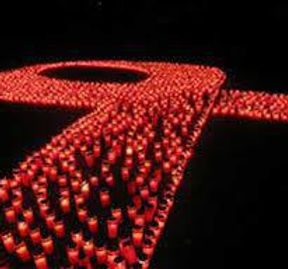South Suburban
Health Alliance

HIV/AIDS and other important Health Facts
HIV 101
HIV is the virus that causes AIDS
It is transmitted through bodily fluids
-
Blood
-
Semen
-
Vaginal Fluid
-
Breast Milk
HIV is most commonly contracted by:
-
having unprotected sex (Vaginal, Anal or Oral) with and infected individual.
-
Sharing needles or injection equipment (works), with and infected person.
-
From HIV positive women to their babies, before or during birth, or through breastfeeding after birth.
Testing
For more information regarding testing sites or receiving one on one HIV testing and counseling please contact or main number and you will be directed to one of the test counselors from our member agencies in the area closest to you. CALL 708/753-5835
Risk Reduction
Most Sexual Activity Carries some risk of spreading HIV. To reduce your risk, make it more difficult for blood or sexual fluid to get into your body.
Here are some tips to do just that.
-
Don’t have sex. (Vaginal, Anal, or Oral) Abstinence is the only 100% proven protection method. If you aren't having sexual contact you are 100% protected from being infected through sex.
-
Don’t share needles or injection equipment this includes needles used for drugs or tatooing.
-
Use condoms consistently and correctly. Use a new condom with every act of anal, oral, or vaginal sex. Latex condoms are highly effective against HIV and other STD's. (if you are allergic to latex, you can use polyurethane or polisoprene condoms) Lambskin condoms do not provide protection from HIV; the virus can slip through the pores in the condom.
-
Use water-based lubricants when having anal or vaginal sex. Lubricants reduce friction and help keep the condom from breaking. Do NOT use an oil-based lubricant (petroleum jelly, hand lotion, baby oil or cooking oil). Oil-based lubricants can damage condoms and cause them to break; making them less effective.
-
Get tested and know your status and that of your partner. Discuss this prior to having sex. Have you ever been tested? (If so, When?) What were the results of your HIV test?¨
-
Be Monogamous. Having one sexual partner reduces your risk of getting HIV—but it won’t protect you completely unless you know your partner is monogamous also and you know that neither of you is infected with HIV.
STD Facts
STD's like Chlamydia, Gonnorhea, and Syphillis are passed mainly through sex (vaginal, anal, or oral).
Chlamydia and Gonorrhea can make both men and women unable to have children.
Chlamydia - Is one of the most common STD's people get. Many people have it and don't know it. A woman may have bleeding between periods, a fever, an upset stomach, thick yellow discharge, pain or burning with urination and pain during sex. Men symptoms may include pain or burning with urination, a white discharge or drip from his penis or pain in his testicles.
Early treatment is key. As Chlamydia can be cured.
Gonorrhea - also known as GC, Clap, and the drip can cause permanent damage to the pelvic and sex organs. It may cause pain and swelling in the knees or other joints, small red blister on the skin and heart problems. A woman may notice yellow or gray discharge, burning or pain with urination, bleeding between periods or after sex, heavier and more painful periods and cramps or pain in the lowere belly. Men symptoms include yellow or greenish drip from the penis or stained underwear, burning or pain when urinating, frequent urination, and swollen or tender testicles.
If symptoms appear they may show up anywhere from 2-21 days after having sex.
Early treatment is key. As Gonorrhea can be cured.
Syphilis also known as syph or bad blood. Stays in your body if you don't get treated and can make a person blind, crippled or insane, even may years after the original infection. Syphilis has been known to cause death. Untreated syphilis may get in the brain, spinal cord, heart or other parts of the body.
In mothers with syphilis it may cause a miscarriage or the baby may be sick when born.
Syphilis is an STD with several stages.
First symptoms show up 1-12 weeks after having sex. Men usually notice symptoms unless the syphilis is in the anus. Many women don't have any symptoms. In this first stage a person may notice a sore called a chancre. There may be more than one sore. Sores may be small or large and they usually don't hurt. They may be found on the mouth, around the anus, on the penis or scrotum of men and around the lips of the vagina or inside the vagina.
A persons lymph glands near the sore may also be swollen.
The syphilis sore will go away after 2-6 weeks and will occure with out treatment. But that doesn't mean that the person is cured.
As the sore heals, or several weeks after it heals, the person may feel sick all over like having the flu, have fever aches, poor appetite, sore throat, A skin rash all over the body, in the mouth, on the palms of the hands or on the sex organs may appear in this second stage. Additionally, a person may experience hair loss, a cough, or eye brain, nerve, bowel, stomach, liver or kidney problems. The rash and flu-like symptoms will go away also without treatment. But you are still not cured.
Finally if untreated syphilis will attack your nervous system and your brain.
YOU MUST GET TREATED TO BE CURED.